Discovery
Sanma Magazine
2025.06.24


Discovery
vol.2 Hiromi Oba(Deco Botanical,Hokuto City,Yamanashi)
Text: Chisa Sato
Photos: Yurie Nagashima
2024.02.22
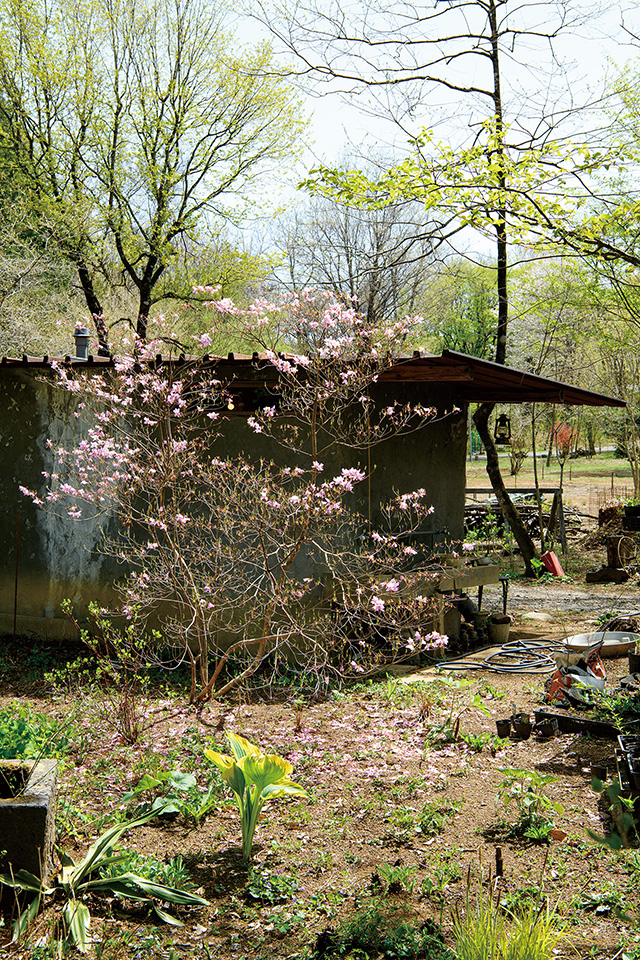
As I ate lunch at the café, I gazed past the terrace at the garden. It occurred to me that everything I was looking at—the building housing the café, the garden, the woods beyond—had been made by hand by the owners of this place. Slowly, I was filled with an appreciation for the labor and love that must have been poured into it. Deco Botanical is a garden café in Hokuto, Yamanashi Prefecture.
A twenty-minute drive from the nearest train station, down a lane through a forest bursting into leaf, it resembles a small village. The buildings have a strong presence yet blend into their surroundings as if they’ve grown from the earth, while the garden with its profusion of flowers seems to melt into the forest.
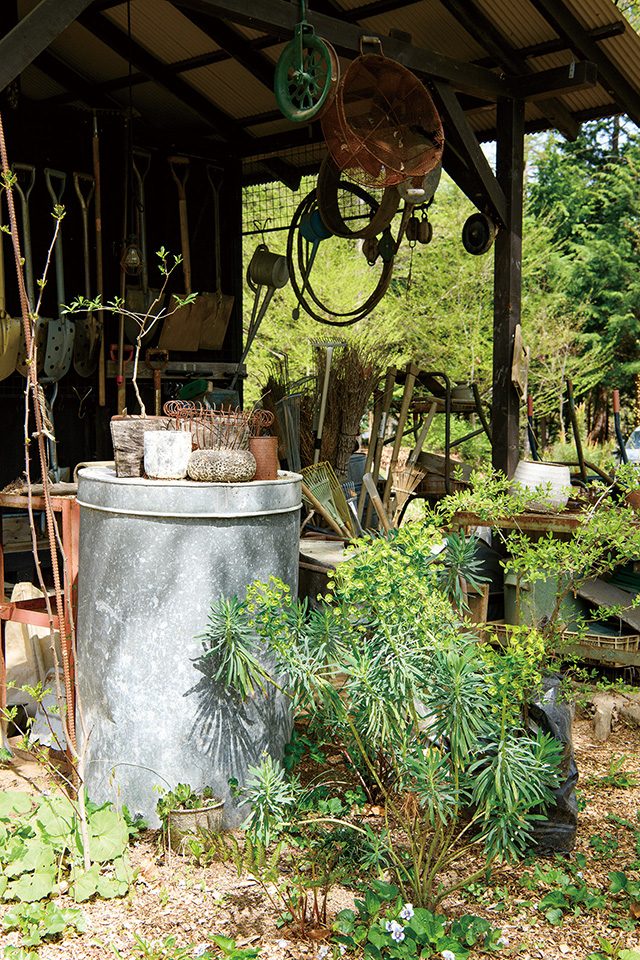
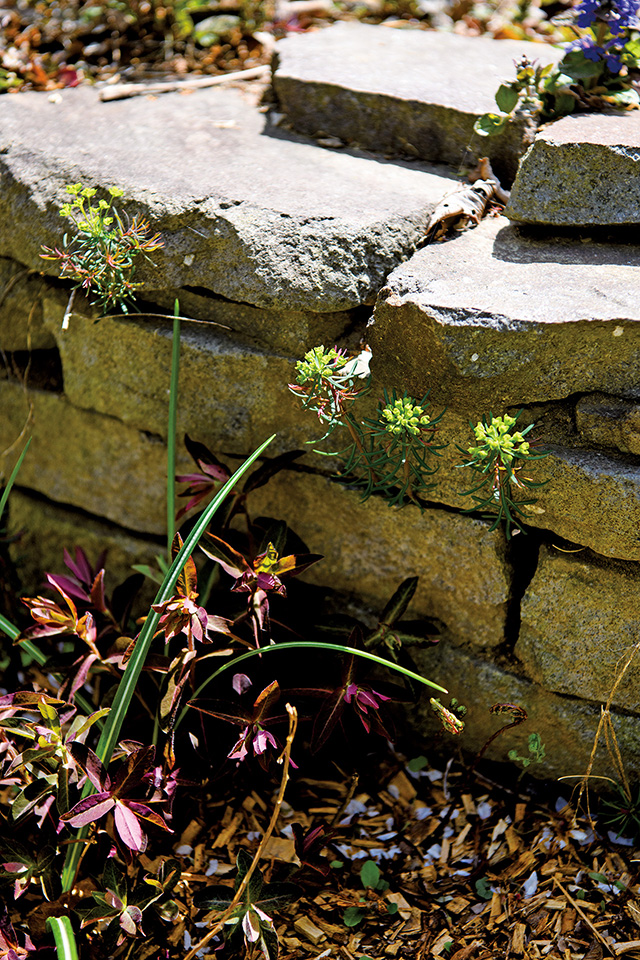
Hiromi Oba and her husband Tomohisa appeared with gardening tools in hand. The couple, who share a love of backcountry skiing, moved to Hokuto in 2007 because they wanted to live closer to nature. “When we looked for land, we didn’t like the lots cleared of every last tree for development. We realized that we would have to create the place we were imagining,” Hiromi told me. They bought an isolated lot spanning about two and a half acres. It was overgrown with dense, neglected forest. Black locust, an invasive tree from North America, was especially pervasive. The prolific pioneer had crowded out native trees like yamazakura and enoki. It took ten years, but the Obas cut down and uprooted the stumps of more than 200 black locusts, clearing paths and reclaiming the land. Eventually, as sunlight began to penetrate the forest, the remaining trees spread their branches, and native plants bloomed once more.
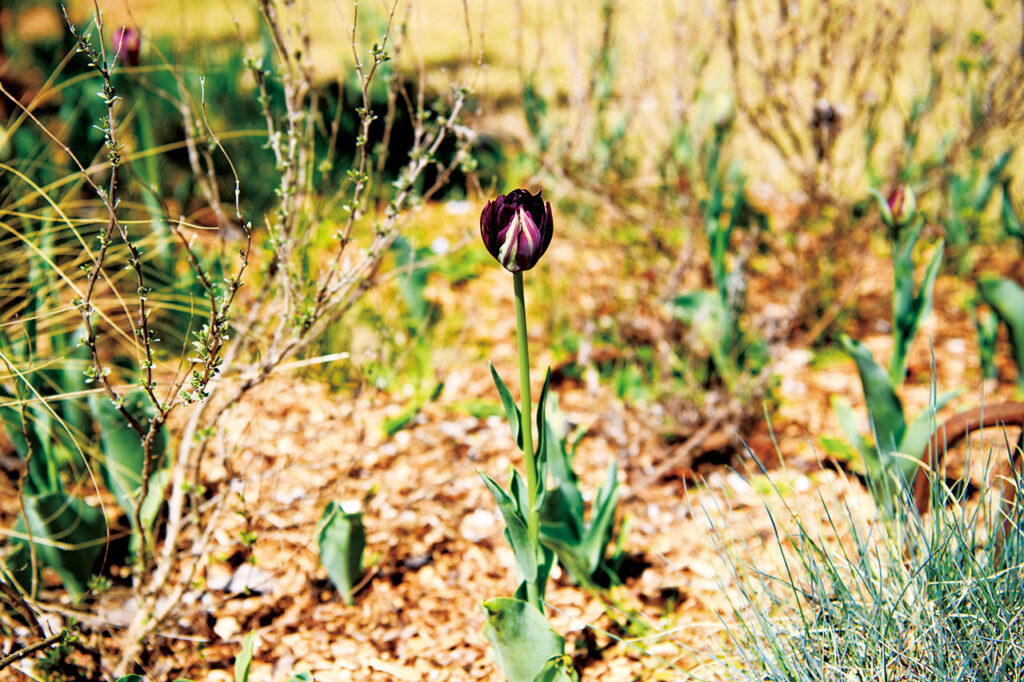
Wanting to share the restored forest with others, they decided to open a café. They worked with a local designer to plan the building and constructed it themselves. Assembled with much skill and ingenuity from recycled lumber and scrap wood, the café has the warmth of a nest. At the same time, the couple began creating a garden. Leaving space for the remaining trees, they envisioned how they wanted the landscape to look. They selected varieties suited to conditions such as sun exposure and moisture. Thinking about color combinations and seasonal changes, they planted seeds and nurtured what grew. The garden unfolds like a painting, with a diversity of plants growing around local stones and rusted objects. The light changes; birds and insects flit about. I could look at the garden forever.
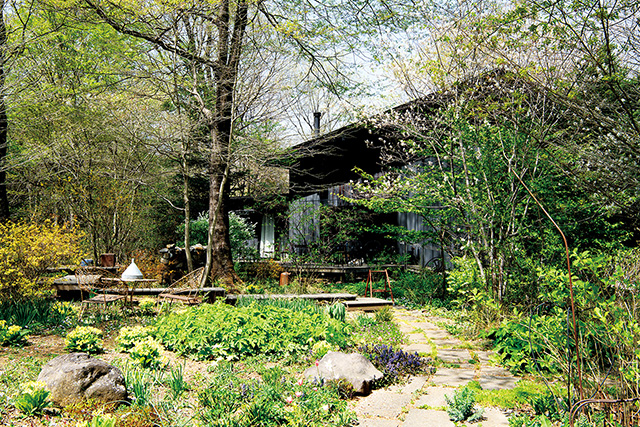
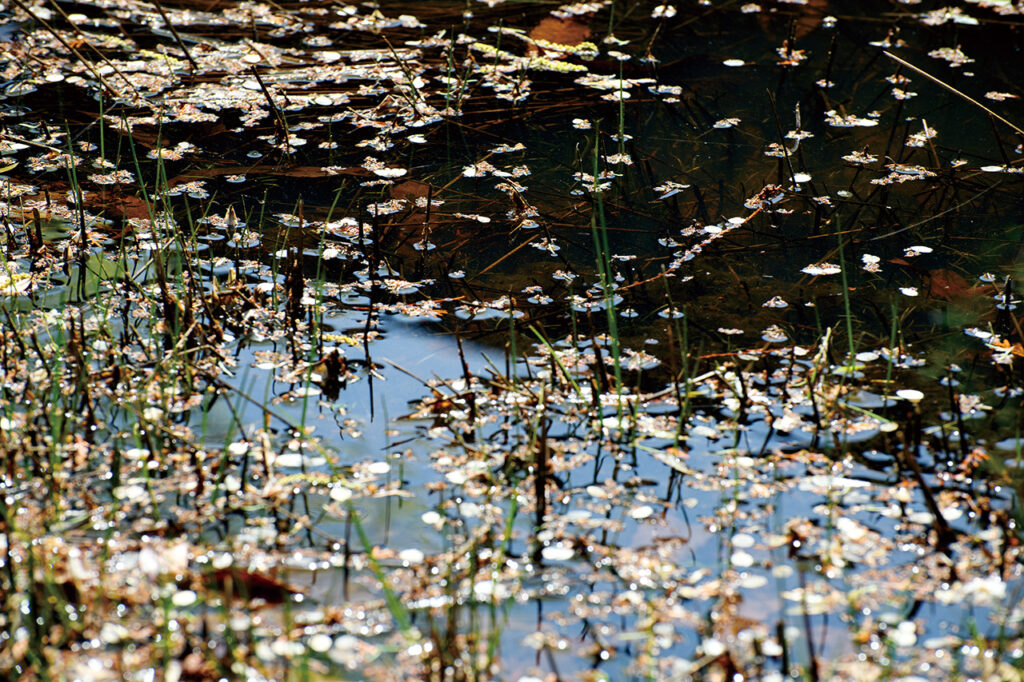
Hiromi taught herself to garden, drawing upon early memories of her mother. “My mother never bought seedlings or seeds. She would get them from friends or save seeds herself. She composted, too, but that was nothing new. In those days, it was taken for granted. She followed the old ways carefully,” she told me. Hiromi has inherited her mother’s temperament, admiring and caring for both living and non-living things.
The Obas manage their large garden using organic practices, creating cycles that produce no waste. They transform the abundant fallen leaves and the café scraps into leaf mold and compost, which they return to the garden. They have installed a composting toilet and do not discharge wastewater. A garden in the woods entails a constant battle against mice, moles, deer, wild boar, insects, and weeds. Rather than using agricultural chemicals and electric fencing, they have chosen more laborintensive methods that they feel comfortable with as inhabitants of the same land.
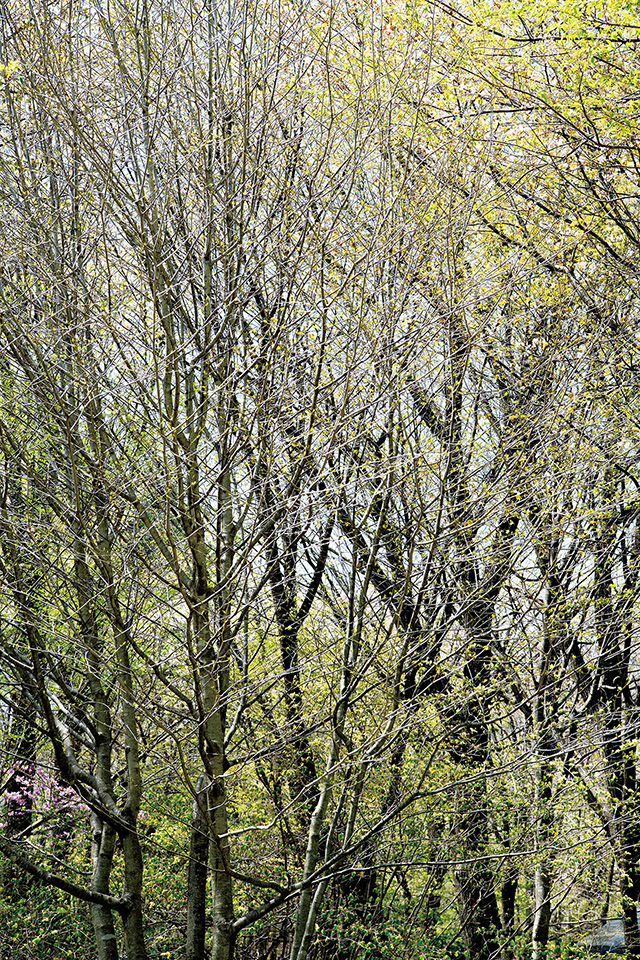
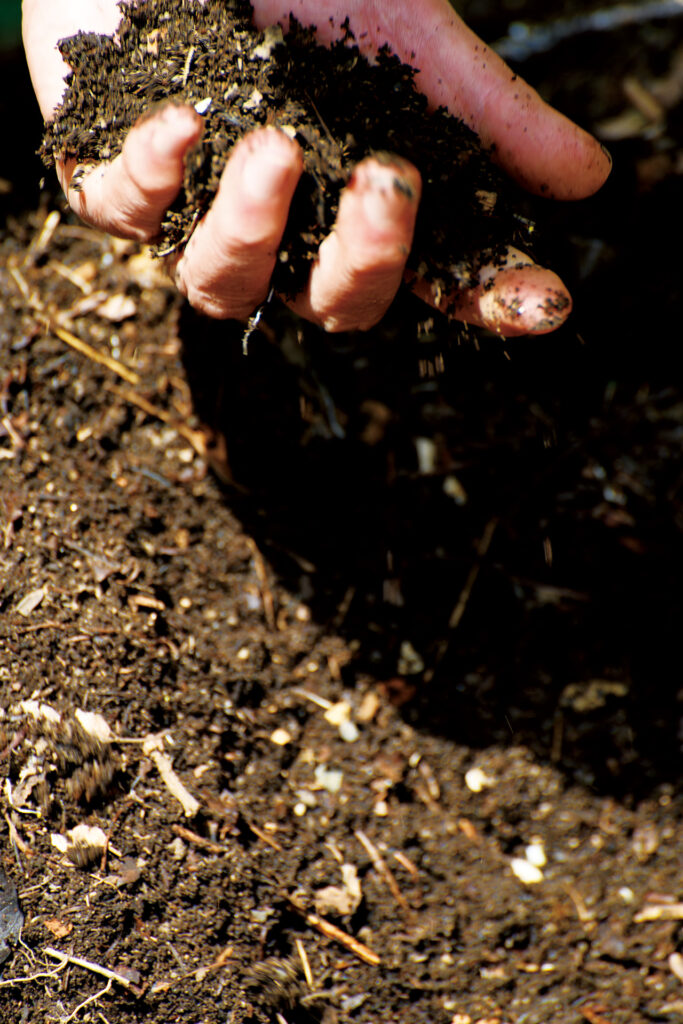
“We are visitors in nature, so at the very least we don’t want to interfere with its cycles,” Hiromi said. What source does her passion spring from? “I suppose I like to do things differently than other people, and I have a particular temperament,” she said with a laugh. “I feel like I receive gifts every day.”
For Hiromi, the garden is a source of wonder.
“When I wake up in the morning, I take the dog for a walk, and when I get back, I have a look around the garden,” she continued. “Although I tend my garden every day, I’ll always find some plant sprouting or another that was eaten by a deer.
For better or worse, something is always different than the day before. There is always a discovery. The garden is not only at its best when it’s in bloom. The swaying seedheads in the fall and the skeletons of the trees in winter are so beautiful. The more you care for a garden, the more you start to notice and the more sensitive you become to nature.
You could do it for decades and never run out of discoveries. It’s true that gardening demands a lot physically, but it gives back joy many times over.”
As we spoke, I glanced at the garden. Tended with love and care, it shone with life.(Reprinted from Subsequence vol.6)
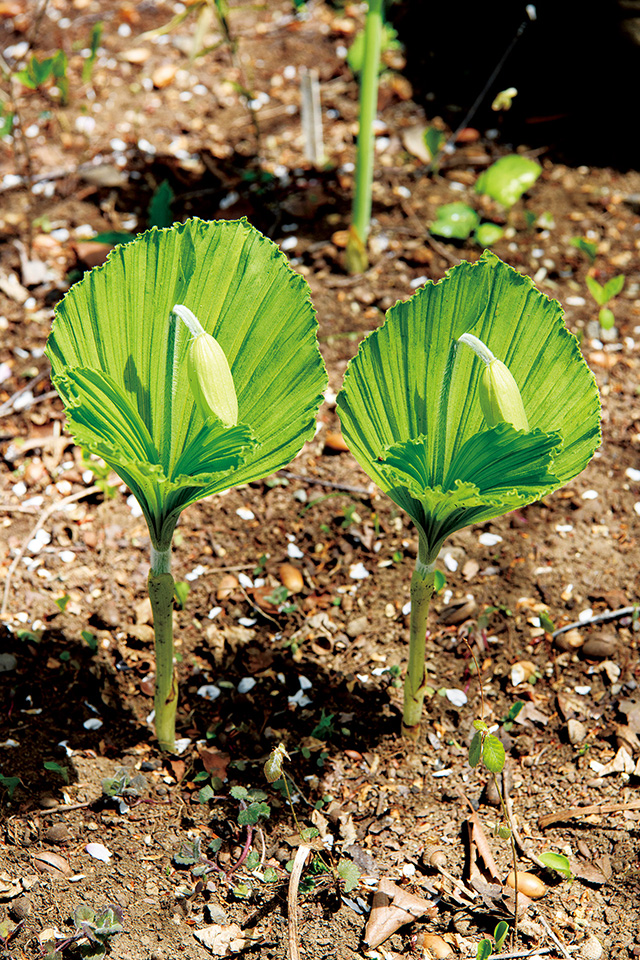
Discovery
Sanma Magazine
2025.06.24

Discovery
“Savor water, Embracing water”
2025.06.04
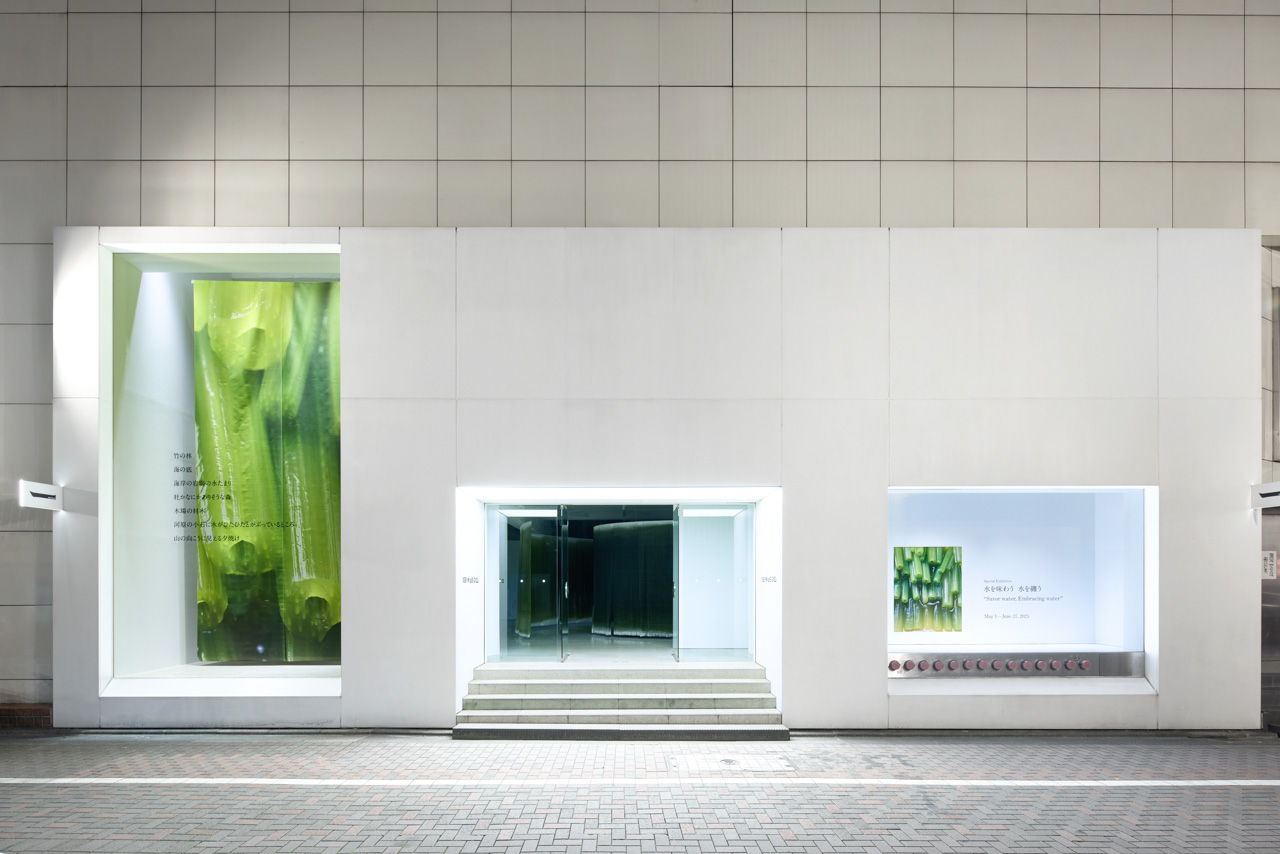
Discovery
Lol Coxhill & Veryan Weston 『A NIGHT IN GLOUCESTER AVENUE』
2025.05.30

Discovery
Arabic alphabet
2025.04.28

